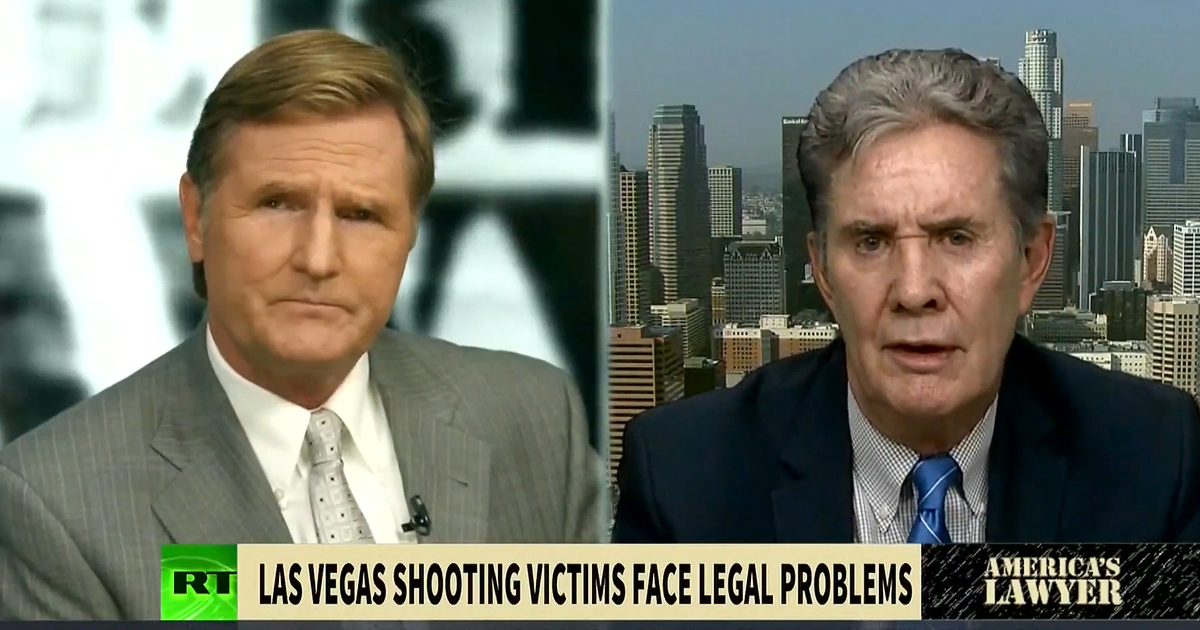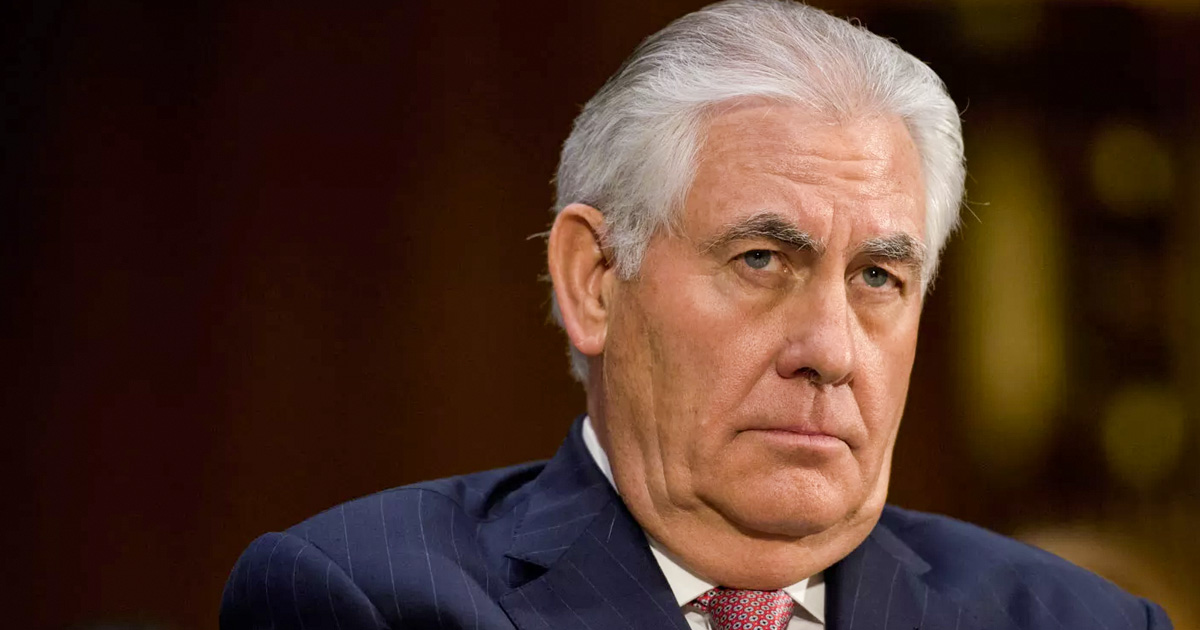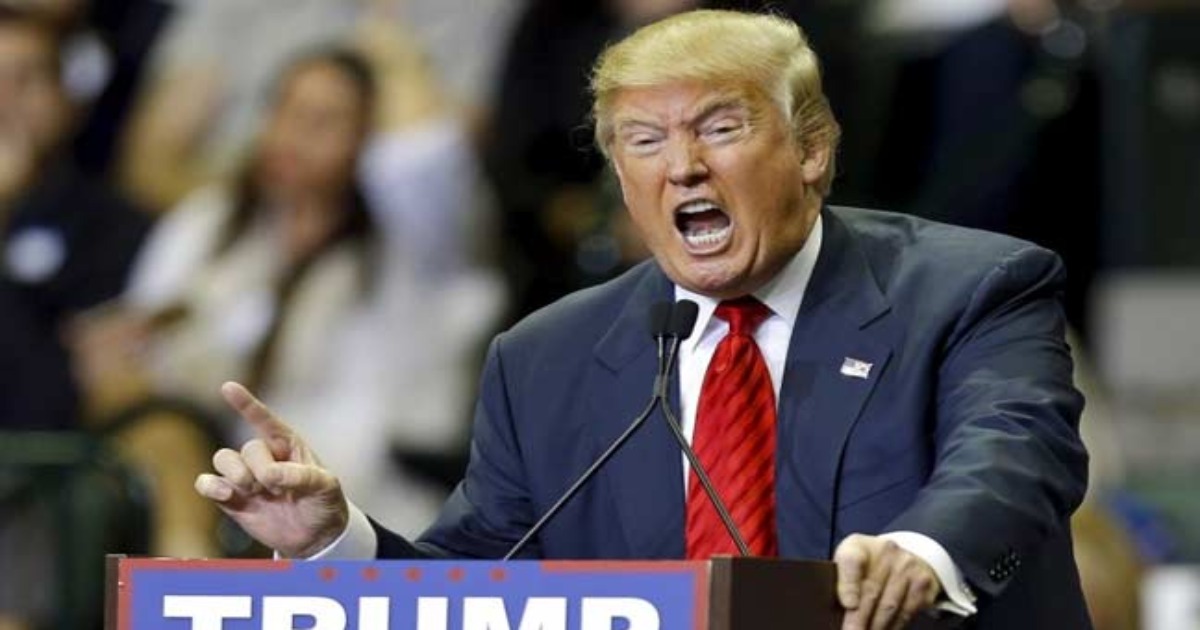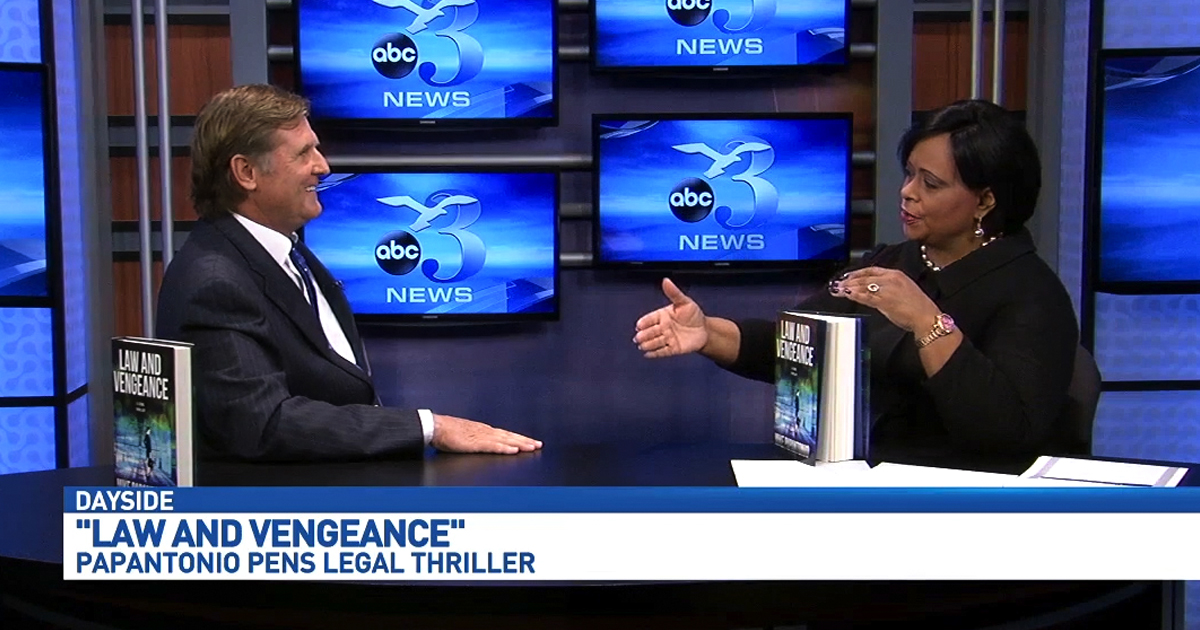To learn more about this topic, visit AL.Law
Via America’s Lawyer: Mike Papantonio and Attorney Richard Patterson talk about the wave of lawsuits filed against several defendants, including Mandalay Bay, MGM Resorts, Live Nation, and the concert promoter in Vegas after the Las Vegas shooting.
Transcript:
Mike Papantonio: On the evening of October 1st, a gunman positioned in a room at the Mandalay Bay hotel and casino in Las Vegas began firing semi-automatic weapons from his hotel window down into a crowd below that had gathered for a music festival. The videos from the tragedy shocked the nation, as thousands of terrified people ran for their lives in between rounds of gunfire. In the end, the shooter, 64-year-old Stephen Paddock, killed 58 people and injured more than 500.
This tragic event currently holds the record as the deadliest mass shooting in American history, replacing the Pulse nightclub shootings from just one year prior. Sadly, mass murder by firearms has become a regular scene in America. Part of the reason for this is our political landscape, as well as the fact that US citizens own more guns per capita than the rest of the world. And yes, all the blood and gore generated by Hollywood movies and the game industry has become a major part of the problem. There is a mountain of legal issues that arise from every mass shooting in the United States, and every one of these issues is playing out right now in the aftermath of the Las Vegas shooting.
One of the most obvious issues is who is at fault. Liability in these situations can extend far beyond the shooter. For example, in the case of Stephen Paddock’s shooting, he gunned down a security guard at the MGM-owned Mandalay Bay a full 6 minutes before he ever fired a shot down into the crowd at the music festival. MGM had a full 6 minutes to prevent this tragedy, and while that may not seem like much time, every second in these kinds of situations matter.
Another liability issue lies with the venue where the concert was being held. Were the exits clearly marked in a way that would allow people to escape in the event of an emergency? From what we’re learning about the Las Vegas shooting, it appears that this wasn’t the case. And for the family members of those lost in this tragedy, they now have to wade through a confusing and heartbreaking pile of paperwork regarding estates, debts, and custody proceedings. The victims of the Las Vegas shooting are facing an uphill battle on all fronts – but fortunately, there are attorneys out there who are working on the front lines to help people put their lives back together as quickly as possible.
For more on this, I’m joined by attorney Richard Patterson, who’s representing the family of one of the men killed in the Las Vegas shooting. From what you’ve experienced, what exactly is unfolding for victims of this shooting weeks after the event? What legal challenges are arising, as you see?
Richard Patterson: Thank you, Mike. It’s great to be here. I appreciate the privilege. The reality is, history is repeating itself. It’s interesting that now the documents related to the Kennedy assassination sound relatively familiar. President Kennedy was shot by a man in a high building apparently by himself. And here we are many, many years later, over 50 years later, and we still have some of these same challenges.
It’s been a real tragedy. I’ve been there. I’ve walked past the site. There’s nothing that will compare with what you can feel and see. Then when the clients begin to come in and tell their stories, it becomes overwhelmingly an emotional burden for everyone. The reality is we have just gone through the first wave of tragedy, and exposure, and loss. Now the second wave is upon us. I call it a tragedy wave, like a tidal wave, and that is, what do we do about the human suffering-
Mike Papantonio: Richard, let me ask you, what’s the nature of the lawsuit that you’re handling on behalf of the family? Tell me what you’ve alleged. What is it you’re trying to accomplish in this lawsuit? Who are you going after?
Richard Patterson: Certainly. The first filing that we had in this matter, which was, I think, the first court filing in the case, was we elected to file in the Clark County, which is in Nevada and Las Vegas, Clark County Probate Court. In that probate court, we were pursuing the court’s order to appoint the public administrator to gather the assets, find them, and to protect them, and hold them subject to the distribution ordered by the court.
We don’t know how wealthy the shooter was. There’s allegations that he won $5 million two years ago gambling. His brother on television said he’s a multimillionaire. We took the steps to protect those and are awaiting the confirmation of that with the court system.
Mike Papantonio: Clearly these are assets that can be recovered from the shooter. That’s your most direct angle here, but MGM Properties seemed to have botched the response to the security guard being shot by Paddock. It seems that there’s an issue with how long Paddock was in his room with a “do not disturb” sign. There are standards about that within the industry. The use of the elevators and the way that he used the service elevators, there are all types of issues flying around here.
I’m assuming what you’ve done here, Robert, is you filed the suit, you’re doing an investigation, you’re trying to find all these moving parts that will continue to develop. My prediction is as this case goes on, you’re going to find standards that are usually followed within the industry that have not been followed here. What’s your general take on where you think this is going to go?
Richard Patterson: There are chapters of this story yet to be unfolded, I’m sure. That is, first of all, MGM has their fingerprints all over both sides of the street. They were co-producers of the concert. They own the site where the concert was held, and they worked with Live Nation. As you probably know, Live Nation is the largest promoter and producer of these kinds of venues. Actually last year, they had $8.5 billion in sales. They have a market value of $6.5 billion. That is one terrific target.
You would’ve thought that they had some mature and seasoned security systems available. They had no exits for emergencies. They had no signs for exits. They had chaos that reigned as soon as the bullets started flying. Someone elected to flip all the flood lights on right on the crowd, darkness all around them with a crowd hunched, and bent, and fallen all over each other. Now that shooter just had a heyday. There was one main exit, which was about eight feet wide. As the people stampeded toward that exit, he shot a couple of people who fell in front of the crowd. They really became densely packed. He shot a couple more there, and the carnage just went on and on.
Mike Papantonio: Robert, what are you seeing about the standards? As we look at the standards here, we look at there are ways … For example, you started off with the Kennedy shooting. I thought that was an interesting analysis, because since then, buildings and parade areas have been handled in a certain way where it comes to security. The way of building, access in and out of the building, has even been varied. There are types of standards that develop in this business after events like that shooting that you talk about.
But as you’re looking it, I think you could go to Mandalay Bay, I’m sure you’re looking at this, and find out that they had standards within their own hotel that were violated. Like I raised earlier, the notion that you don’t leave a person in a room for 36 hours without saying, ‘What in the world’s going on?’ Matter of fact, Steve Wynn recently gave an interview about that, and he said, ‘We’d never consider that type of thing.’ Does Mandalay Bay think that they just escaped this thing from the way you’re seeing them promote this story?
Richard Patterson: Of course, it’s difficult to know what they think, but we can project that they’re being directed by risk management and their insurance companies. This really is a situation in the whole country that the insurance companies could do the right thing. They could find that there was something amiss, going and do their own investigations.
MGM is basically hiding the ball here. They argue with the city police, the metro police, the FBI, as to what the time frames were. You’d think that they’d come together in a room, get the FBI, the metro police, the experts, MGM, and share everything. That’s not happening. They’re not forthcoming. Of course, a restraining order has been filed and granted by the court that prevents tampering. It’s spoliation.
Mike Papantonio: As this develops, Robert, one thing we do see … the idea is that Mandalay Bay, the owners, the insurance companies, the promoters, they, first of all, have to come to the conclusion that this doesn’t just happen, that it wasn’t just this crazy man up with a gun. It didn’t just happen by itself. There were too many events that took place in between him going to his room, locking the door for 36 hours, using the service elevator to come up and down. There were too many events in between the shooting and that time to say, ‘Well, gee whiz, we’re going to take a scorched earth approach here. We’re simply not going to pay.’ If you see the insurance company do that, I’ll make a prediction that they’ll get hammered with one of the biggest verdicts that they’ve ever had.
Then after that, maybe then people will come together, and they’ll say, ‘Well, we see this as a real problem. Let’s try to mediate this. Let’s try to give these people the right to come in and tell us what their damages are. And in the process, let’s correct this in the future so it doesn’t happen again.’
Isn’t that what your goal is here? Obviously, nobody wants to make this into a long, drawn out event for these families. They’ve already suffered enough. Isn’t this something that you would push is to say, ‘Look, let’s keep level heads. Let’s come into a room and everybody sit and talk about the obvious, and that is everybody had partial role in doing something wrong here.’ What’s your take?
Richard Patterson: Exactly. We’re looking also for the videos. You can’t walk 15 feet in a casino like that in a hotel without being on a video. Those haven’t been disclosed, but they are now under court order not to be destroyed or erased, and that’s important. I believe that the tragedy that will unfold, as I call it the second tidal wave of tragedy, when people start to tell their stories in real time as it affects their lives, will just set fire to the defense’s position that they’re going to put their head in the sand and do nothing.
Mike Papantonio: I’m assuming that what you’re doing is putting a group of some of the better lawyers and yourself together in that area and saying, ‘Let’s all try to work on this collectively. Let’s all do the discovery collectively. Let’s all get on the same sheet of music rather than any competition here. Let’s try to move forward in a collective manner.’
That would be my recommendation. I’ve got to tell you, I’ve handled some of the biggest cases in this country, and I hope that that’s what you’ll do out there, that everybody will just come together and really try to accomplish something that is in the best interest of all these people. But thanks for doing the first thing that needed to be done, and that is to file a case and preserve what assets this shooter had.
Thanks for joining me, OK?
Richard Patterson: Thank you. Thank you.





